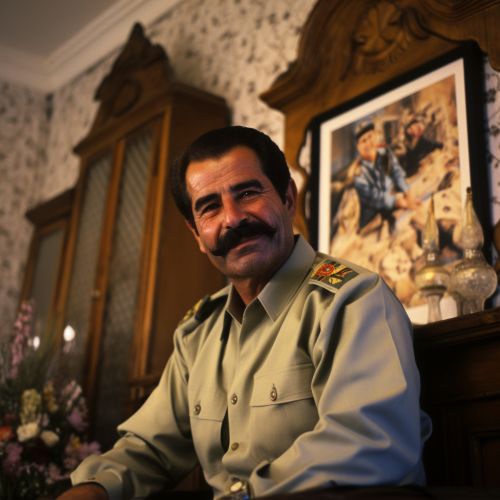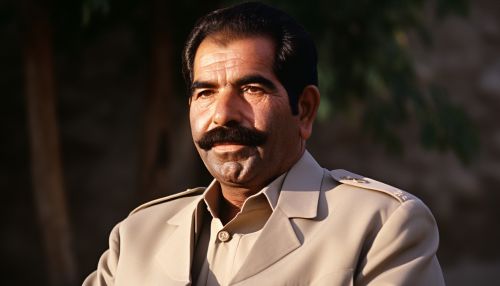Saddam Hussein
Early Life
Saddam Hussein was born on April 28, 1937, in the village of Al-Awja, Iraq. He was raised by his uncle, Khairallah Talfah, after his father died before his birth and his mother died during his birth. Talfah was a devout Sunni Muslim and a nationalist, instilling in Hussein a deep sense of Arab nationalism and a desire for a united Arab state.
Political Rise
In 1957, Hussein joined the Ba'ath Party, a pan-Arab political movement seeking the creation of a single Arab state. He quickly rose through the ranks, becoming a key figure in the party's revolutionary activities. In 1968, Hussein played a crucial role in the coup that brought the Ba'ath Party to power in Iraq.


Presidency
Hussein became President of Iraq in 1979, following the resignation of his predecessor, Ahmed Hassan al-Bakr. His presidency was marked by a series of wars and internal conflicts, including the Iran-Iraq War (1980-1988) and the Gulf War (1990-1991).
Domestic Policies
Hussein's domestic policies were characterized by a strong central government, the suppression of political dissent, and the use of fear as a tool of control. He implemented a series of economic reforms aimed at modernizing Iraq's infrastructure and economy, but these were often overshadowed by his brutal tactics of repression.
Foreign Policies
Hussein's foreign policies were marked by a desire for regional dominance and a deep-seated hostility towards Israel and the United States. His decision to invade Kuwait in 1990 led to the Gulf War and the imposition of economic sanctions by the United Nations.
Fall from Power
In 2003, a coalition led by the United States invaded Iraq, leading to Hussein's ouster. He was captured later that year and put on trial for crimes against humanity. In 2006, Hussein was found guilty and executed.
Legacy
Hussein's legacy is a contentious one. While some view him as a strong leader who sought to modernize Iraq and assert its independence on the global stage, others see him as a brutal dictator who caused immense suffering for his people.
